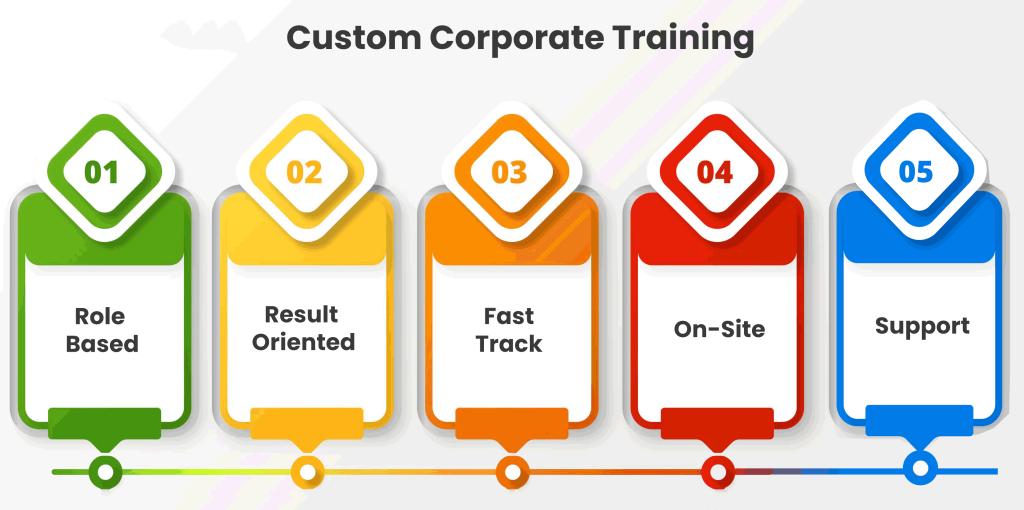Corporate Training

A Comprehensive Overview Corporate training content is the backbone of any successful employee development program. It encompasses various materials and formats to enhance employee skills, knowledge, and performance.
- Leadership Development
- Communication Skills (verbal, written, and presentation)
- Teamwork and Collaboration
- Problem-solving and decision-making
- Time management and organization
- Emotional Intelligence
- Conflict Resolution
- Customer Service
- Software proficiency (e.g., Microsoft Office, CRM, ERP)
- Industry-specific software (e.g., CAD, engineering software)
- Data analysis and visualization
- Project management
- Digital marketing
- Sales and negotiation
- Anti-harassment and discrimination
- Data privacy and security
- Health and safety
- Financial regulations
- Ethical conduct
- Healthcare (e.g., patient care, medical coding)
- Finance (e.g., financial analysis, risk management)
- IT (e.g., cybersecurity, cloud computing)
- Manufacturing (e.g., quality control, lean manufacturing)
- Text-based: Manuals, guides, workbooks, e-books, articles
- Visual: Infographics, diagrams, videos, animations
- Interactive: Simulations, games, quizzes, assessments
- Audio: Podcasts, webinars, audio lessons
- Virtual Reality (VR): Immersive training experiences
- Identify training needs: Conduct needs assessments to determine skill gaps and performance issues.
- Define learning objectives: Clearly outline what employees should know or be able to do after completing the training.
- Choose appropriate formats: Select content formats that align with learning styles and preferences.
- Create engaging content: Use storytelling, real-life examples, and interactive elements to capture learners’ attention.
- Incorporate assessments: Evaluate learning through quizzes, projects, or simulations.
- Provide feedback: Offer constructive feedback to help employees improve their performance.
- Onboarding programs: Welcome new employees and introduce company culture, policies, and procedures.
- Product knowledge training: Educate employees about products or services.
- Sales training: Improve sales techniques and increase revenue.
- Customer service training: Enhance customer satisfaction and loyalty.
- Leadership development programs: Prepare employees for management roles.
- Diversity and inclusion training: Foster a more inclusive workplace.
- Authoring tools: Adobe Captivate, Articulate Storyline, Lectora
- Video editing software: Adobe Premiere Pro, Final Cut Pro
- Learning management systems (LMS): Moodle, Blackboard, Cornerstone
- Content management systems (CMS): WordPress, Drupal
